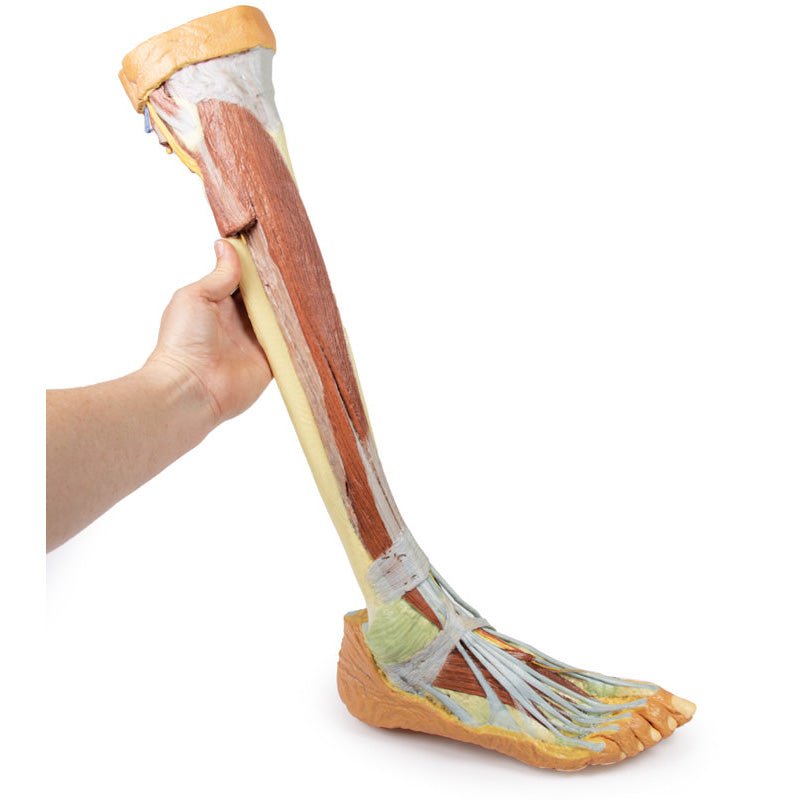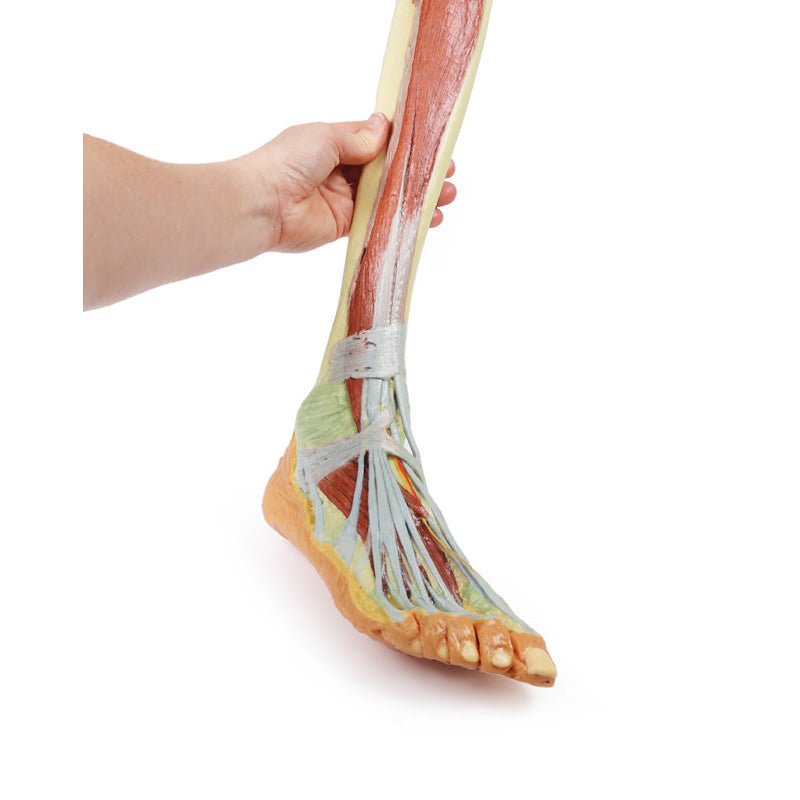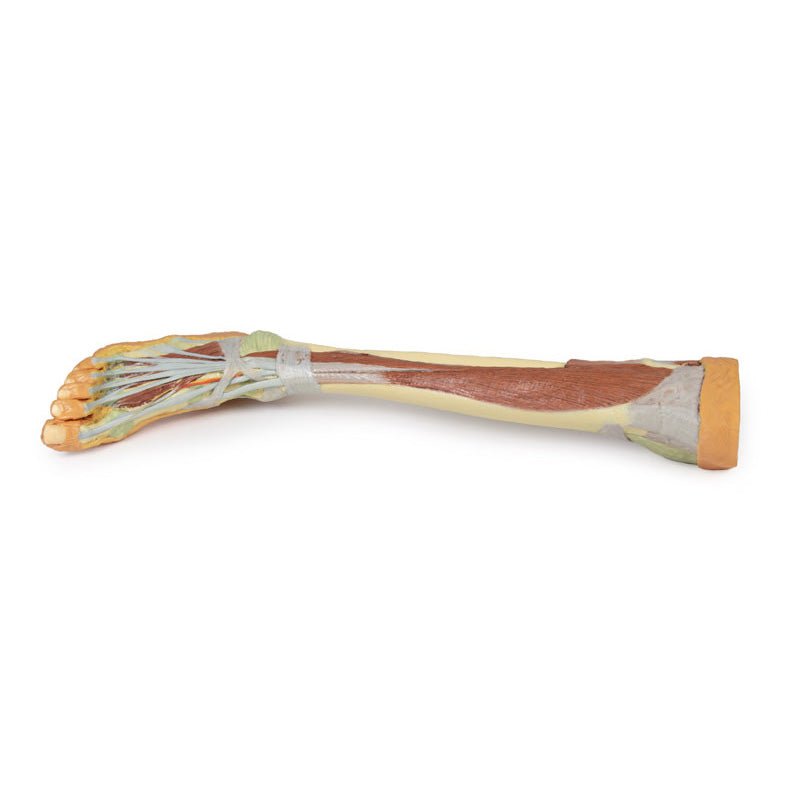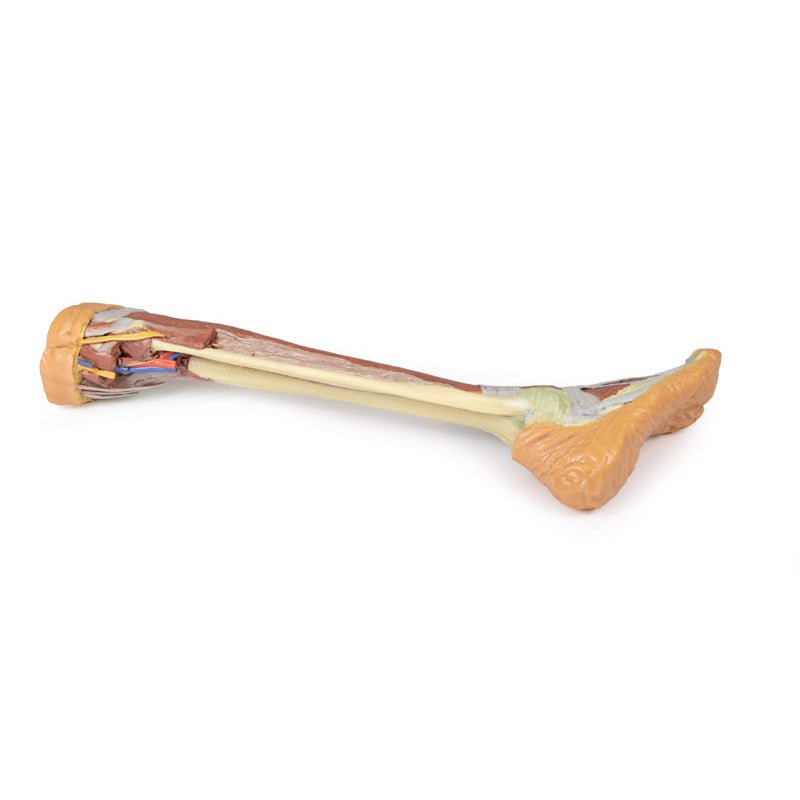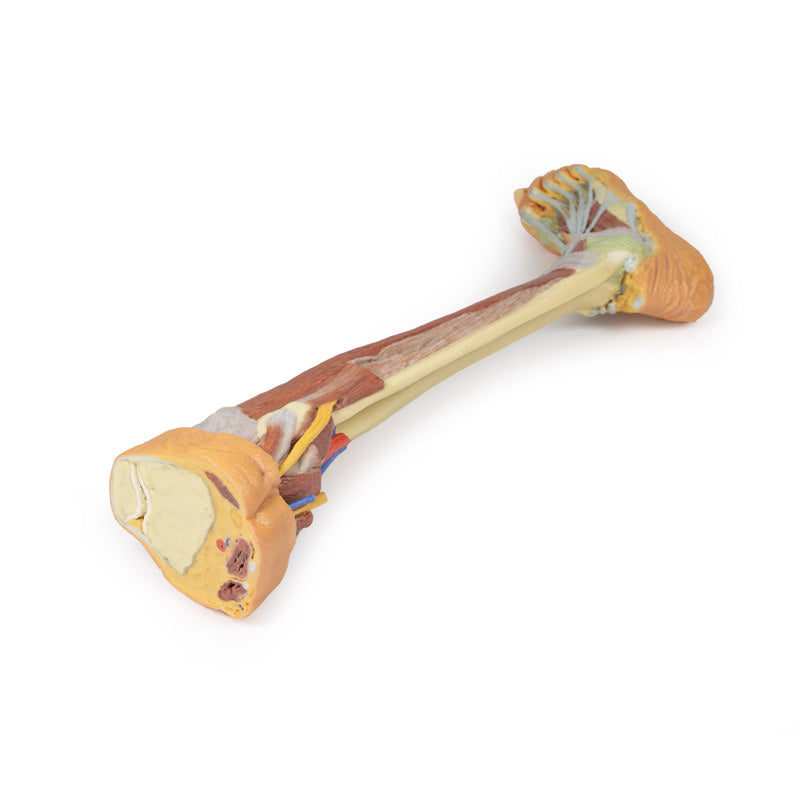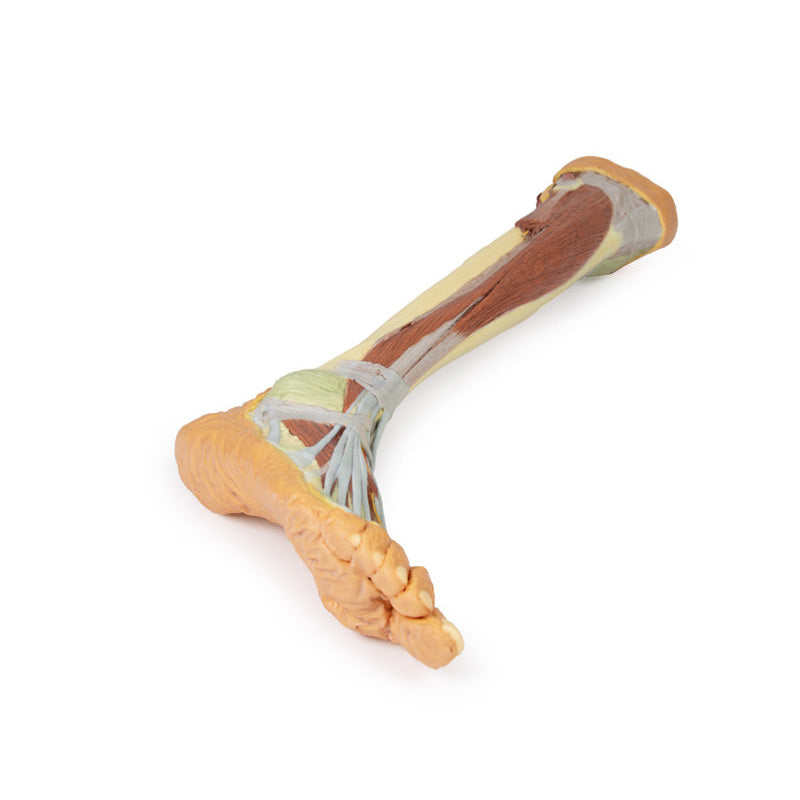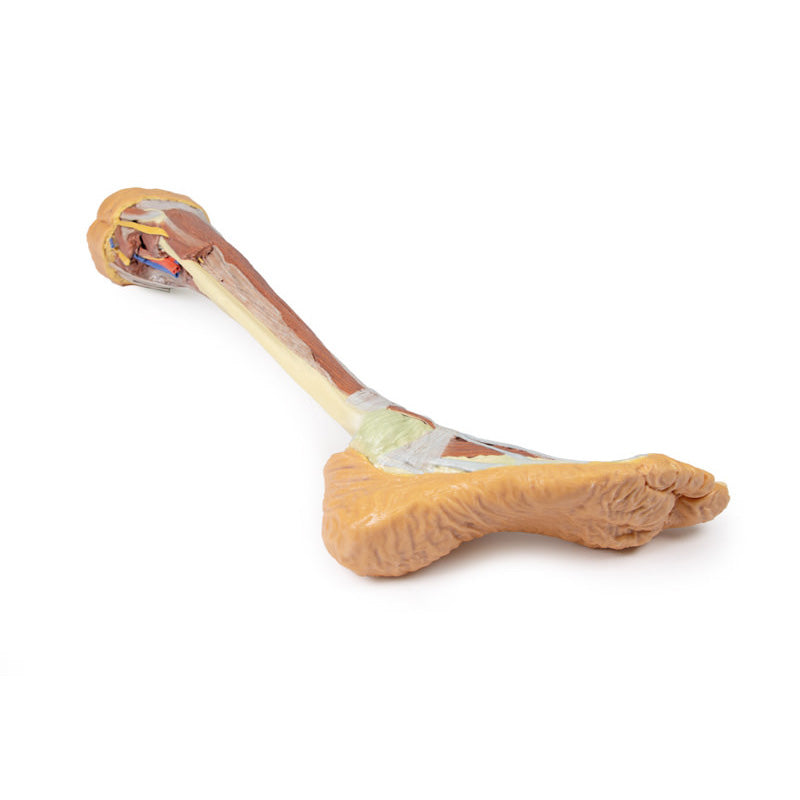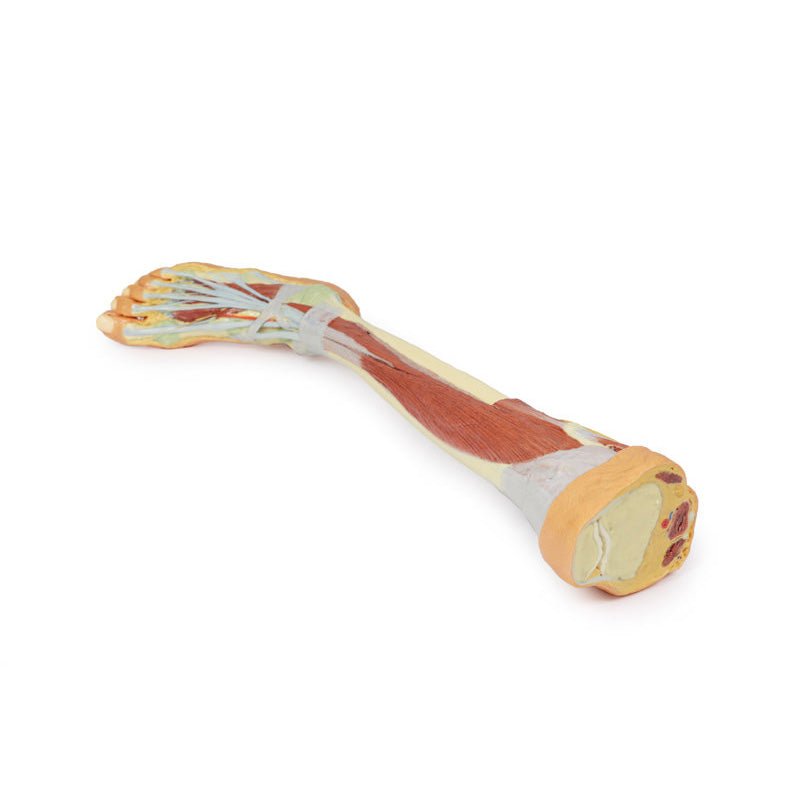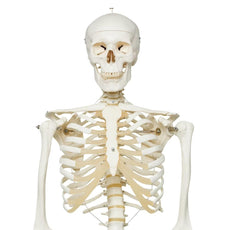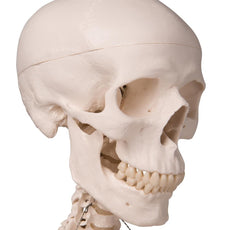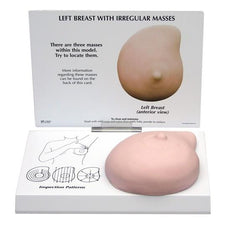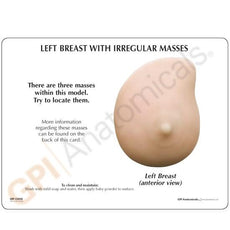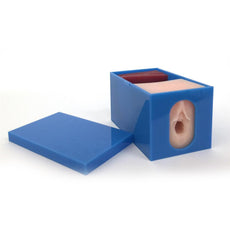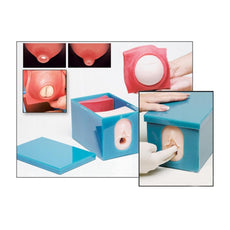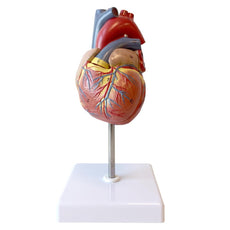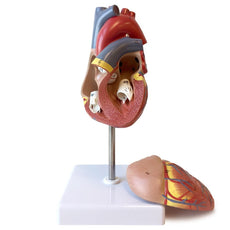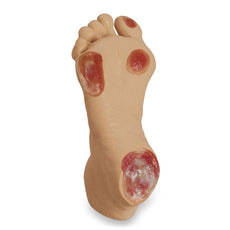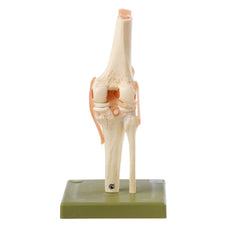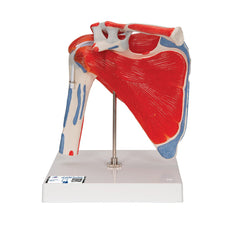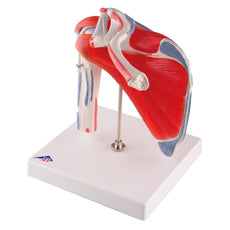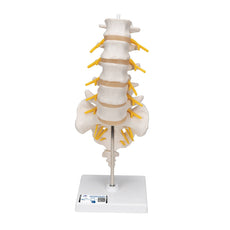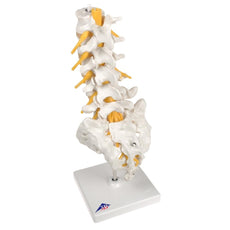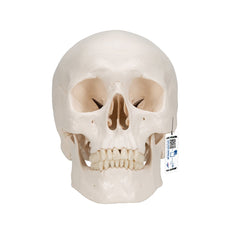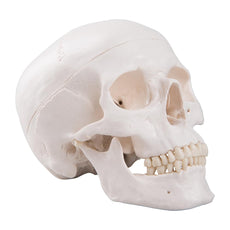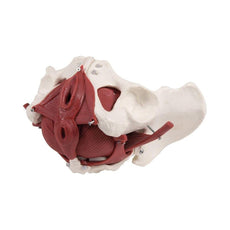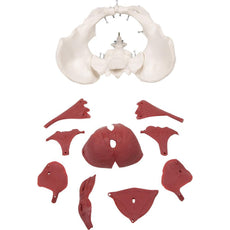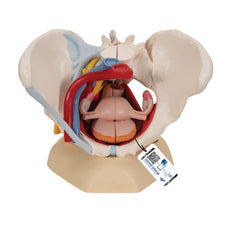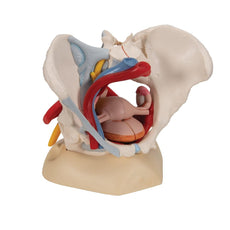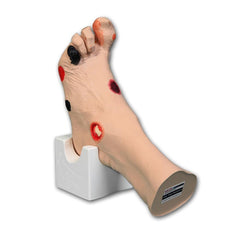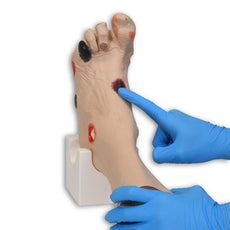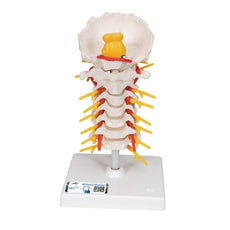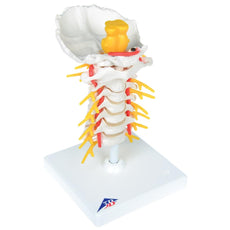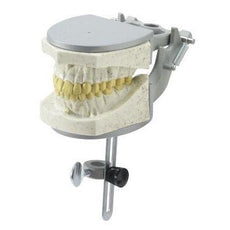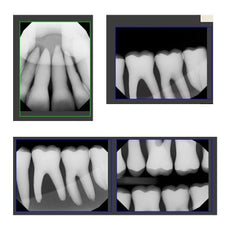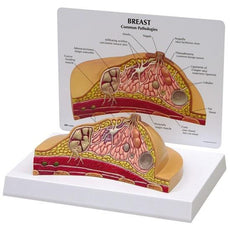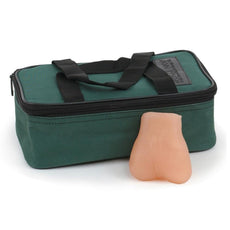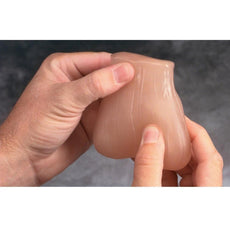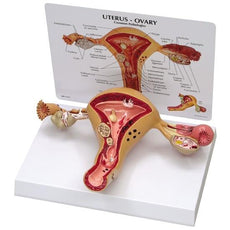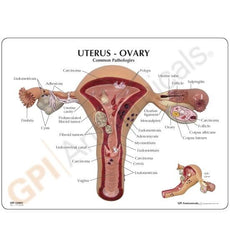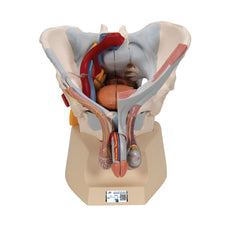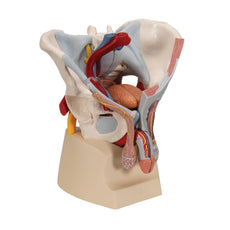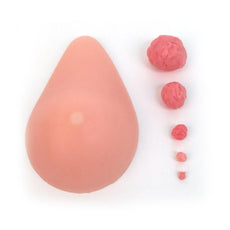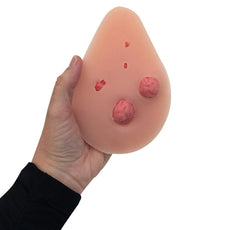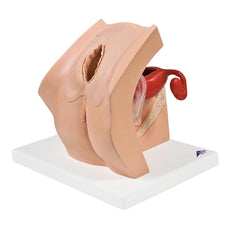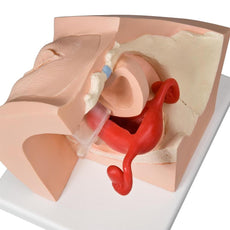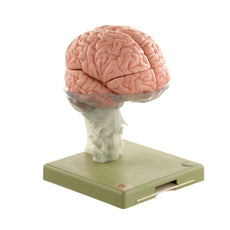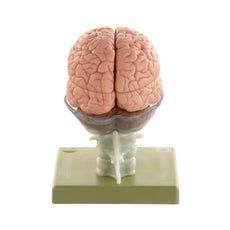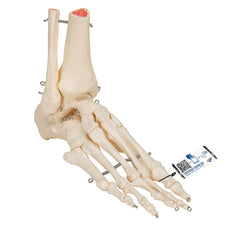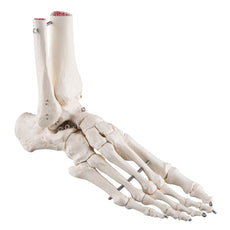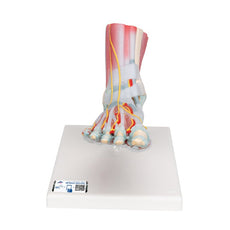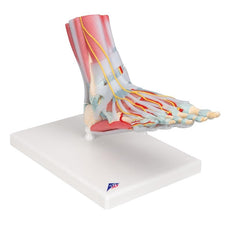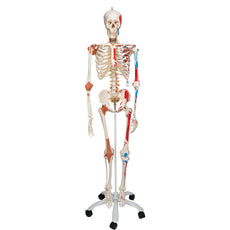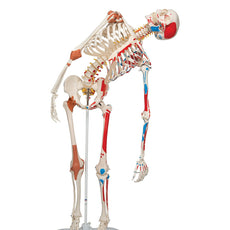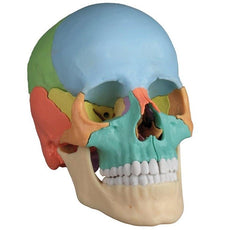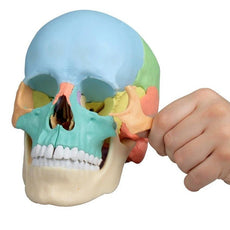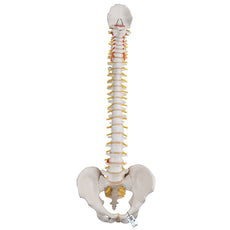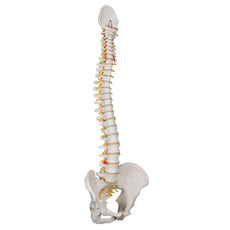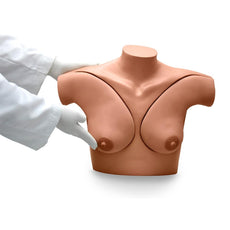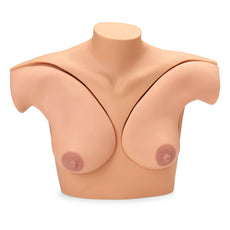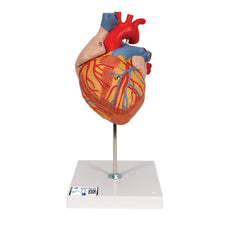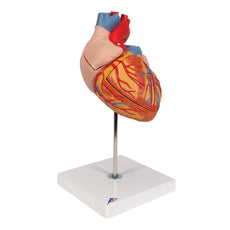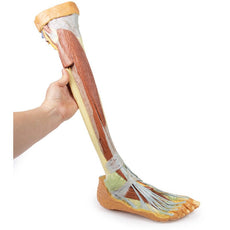Your shopping cart is empty.
3D Printed Lower Limb - deep dissection Model
The bulk of the posterior compartment musculature (excepting the proximal deep posterior muscular origins and insertions and the distal tendons of the tibialis posterior, flexor digitorum longus and flexor hallucis longus) and the lateral compartment musculature (excepting the proximal portion of the fibularis longus muscle) have been removed to the ankle joint, while the anterior compartment musculature has been maintained and exposed deep to the crural fascia. Deep to the exposed posterior surface of the interosseous membrane the anterior tibial artery and vein can be seen passing distally through the anterior compartment. On the anterior and distal aspect of the specimen the tendons of the anterior musculature pass deep to the extensor and peroneal retinaculae and are visible passing to their respective insertions. The dorsalis pedis and the terminal portion of the deep peroneal nerve is visible lateral to the extensor hallucis longus tendon and medial to the extensor hallucis brevis tendons, and a well-developed extensor digitorum brevis is visible deep to the extensor digitorum longus and peroneus tertius tendons.
Download Handling Guidelines for 3D Printed Models
GTSimulators by Global Technologies
Erler Zimmer Authorized Dealer

10.0 lb
🎄 HOLIDAY SAVINGS - Ends Dec 31 🎄
Discount has been automatically applied for this item.
3D Printed Lower Limb - deep dissection Model
Item # MP1809
$3,141.00
$3,490.00
You save $349.00
Need an estimate?
Click Add To Quote

Features & Specifications
-
by
A trusted GT partner -
FREE Shipping
U.S. Contiguous States Only -
3D Printed Model
from a real specimen -
Gov't pricing
Available upon request
Frequently Bought Together
3D Printed Lower Limb - deep dissection Model
This 3D printed specimen consists of a right partial lower limb sectioned just proximal to the knee joint and complete through a partially dissected foot exposing the structures on the dorsum. In the proximal cross section, the patella articulates with the distal femur anteriorly, while the posterior portion of the specimen preserves structures within the superior portion of the popliteal fossa (including the popliteal artery, vein, and terminal portion of the sciatic nerve). On the posterior aspect of the specimen distal to the knee joint, most of the musculature has been removed to demonstrate the passage of the neurovascular structures (common peroneal nerve, tibial nerve, posterior tibial artery, anterior tibial artery) relative to the deep musculature (e.g., popliteus muscle) and the interosseous membrane between the exposed posterior surfaces of the tibia and fibula. Medially the pes anserinus is visible inserting onto the medial aspect of the proximal tibia, while laterally the biceps femoris is seen inserting into the head of the fibula adjacent to the common peroneal nerve.The bulk of the posterior compartment musculature (excepting the proximal deep posterior muscular origins and insertions and the distal tendons of the tibialis posterior, flexor digitorum longus and flexor hallucis longus) and the lateral compartment musculature (excepting the proximal portion of the fibularis longus muscle) have been removed to the ankle joint, while the anterior compartment musculature has been maintained and exposed deep to the crural fascia. Deep to the exposed posterior surface of the interosseous membrane the anterior tibial artery and vein can be seen passing distally through the anterior compartment. On the anterior and distal aspect of the specimen the tendons of the anterior musculature pass deep to the extensor and peroneal retinaculae and are visible passing to their respective insertions. The dorsalis pedis and the terminal portion of the deep peroneal nerve is visible lateral to the extensor hallucis longus tendon and medial to the extensor hallucis brevis tendons, and a well-developed extensor digitorum brevis is visible deep to the extensor digitorum longus and peroneus tertius tendons.
Download Handling Guidelines for 3D Printed Models
GTSimulators by Global Technologies
Erler Zimmer Authorized Dealer
These items normal warranty are two years, however the warranty doesn’t cover “wear and tear”. The manufacturer does have 100% quality control on these models.
The models are very detailed and delicate. With normal production machines you cannot realize such details like shown in these models.
The printer used is a color-plastic printer. This is the most suitable printer for these models.
The plastic material is already the best and most suitable material for these prints. (The other option would be a kind of gypsum, but this is way more fragile. You even cannot get them out of the printer without breaking them).The huge advantage of the prints is that they are very realistic as the data is coming from real human specimen. Nothing is shaped or stylized.
The users have to handle these prints with utmost care. They are not made for touching or bending any thin nerves, arteries, vessels etc. The 3D printed models should sit on a table and just rotated at the table.
The models are very detailed and delicate. With normal production machines you cannot realize such details like shown in these models.
The printer used is a color-plastic printer. This is the most suitable printer for these models.
The plastic material is already the best and most suitable material for these prints. (The other option would be a kind of gypsum, but this is way more fragile. You even cannot get them out of the printer without breaking them).The huge advantage of the prints is that they are very realistic as the data is coming from real human specimen. Nothing is shaped or stylized.
The users have to handle these prints with utmost care. They are not made for touching or bending any thin nerves, arteries, vessels etc. The 3D printed models should sit on a table and just rotated at the table.

by — Item # MP1809
3D Printed Lower Limb - deep dissection Model
$3,141.00
$3,490.00
Add to Cart
Add to Quote



